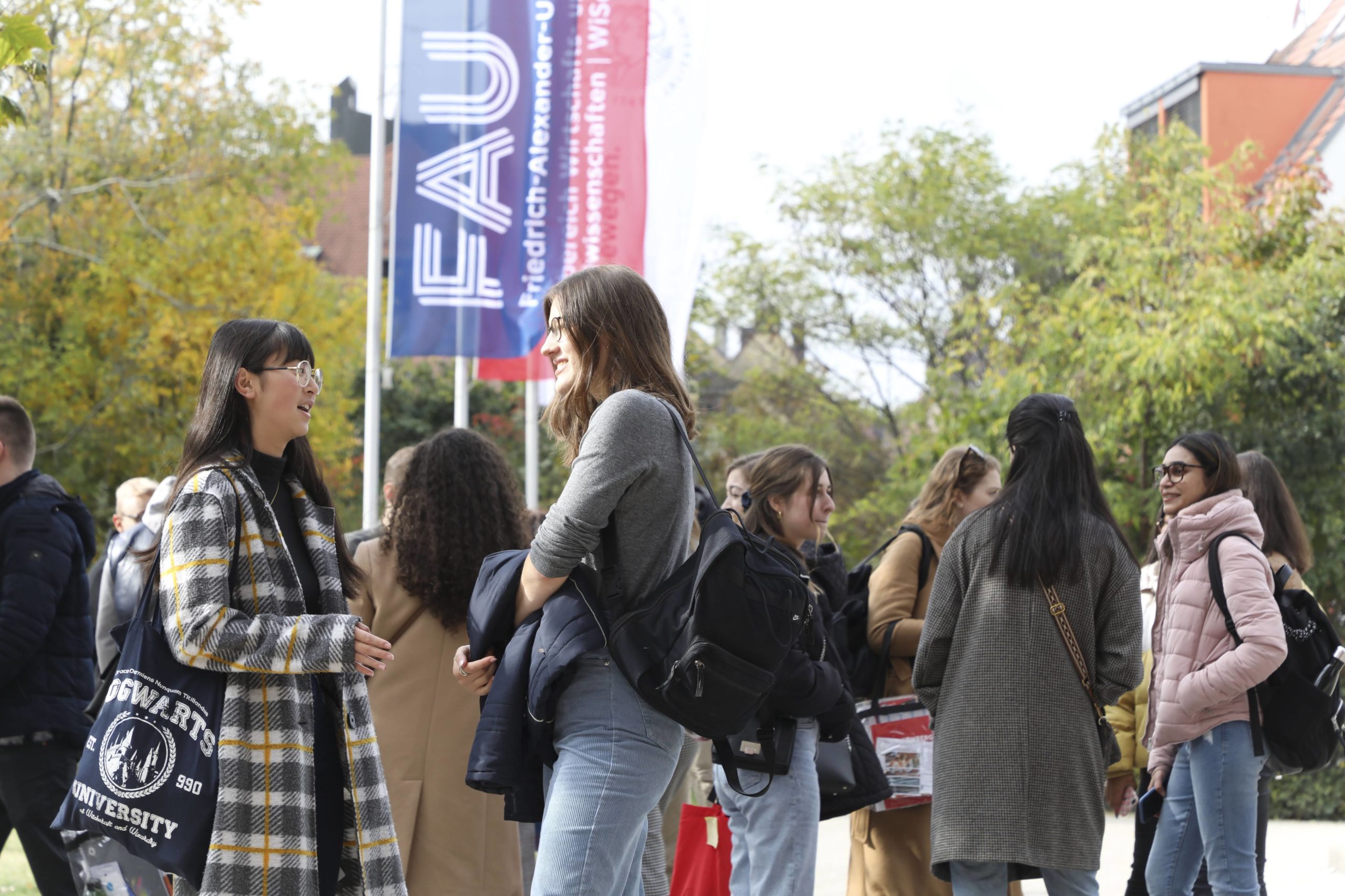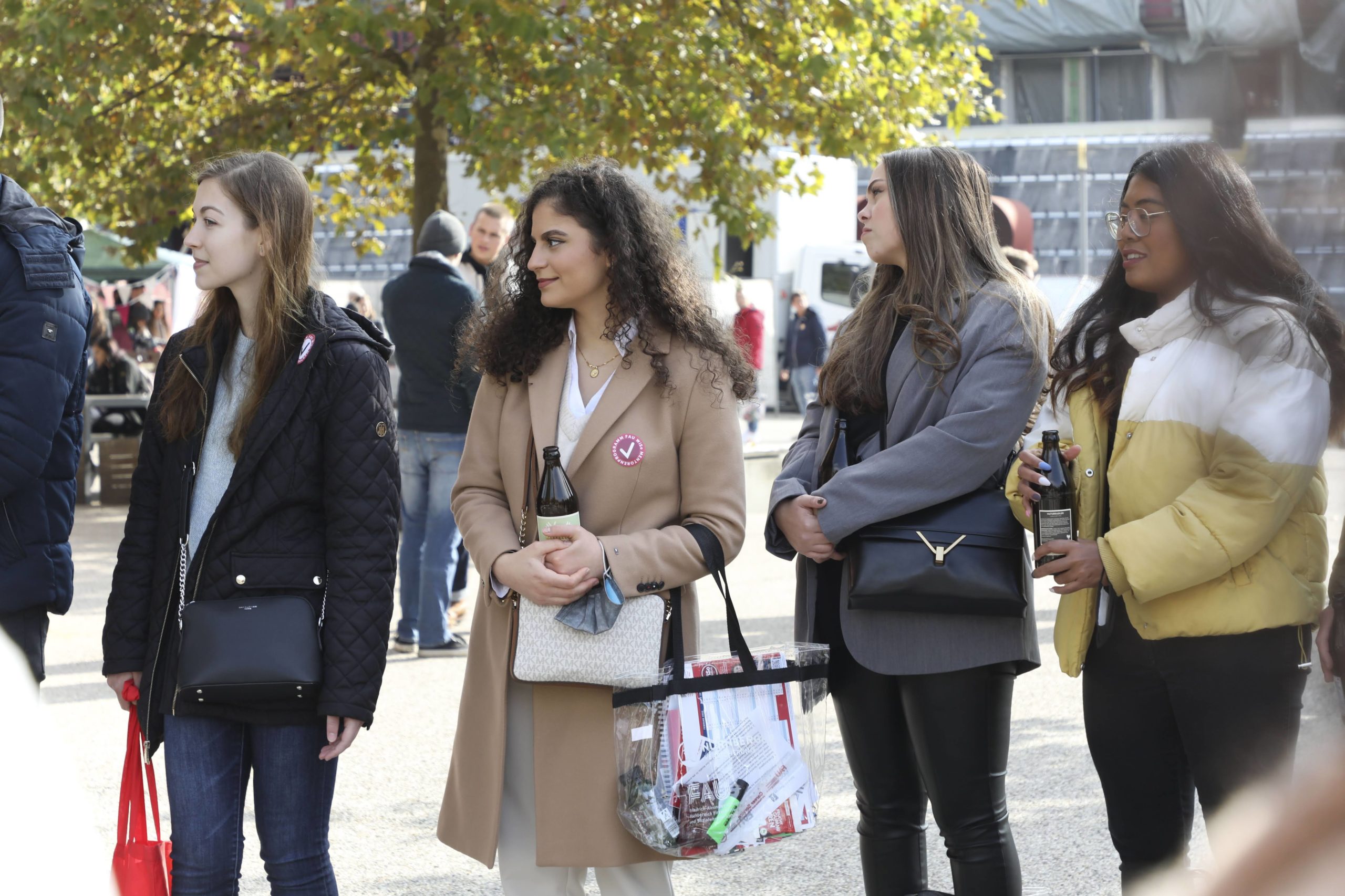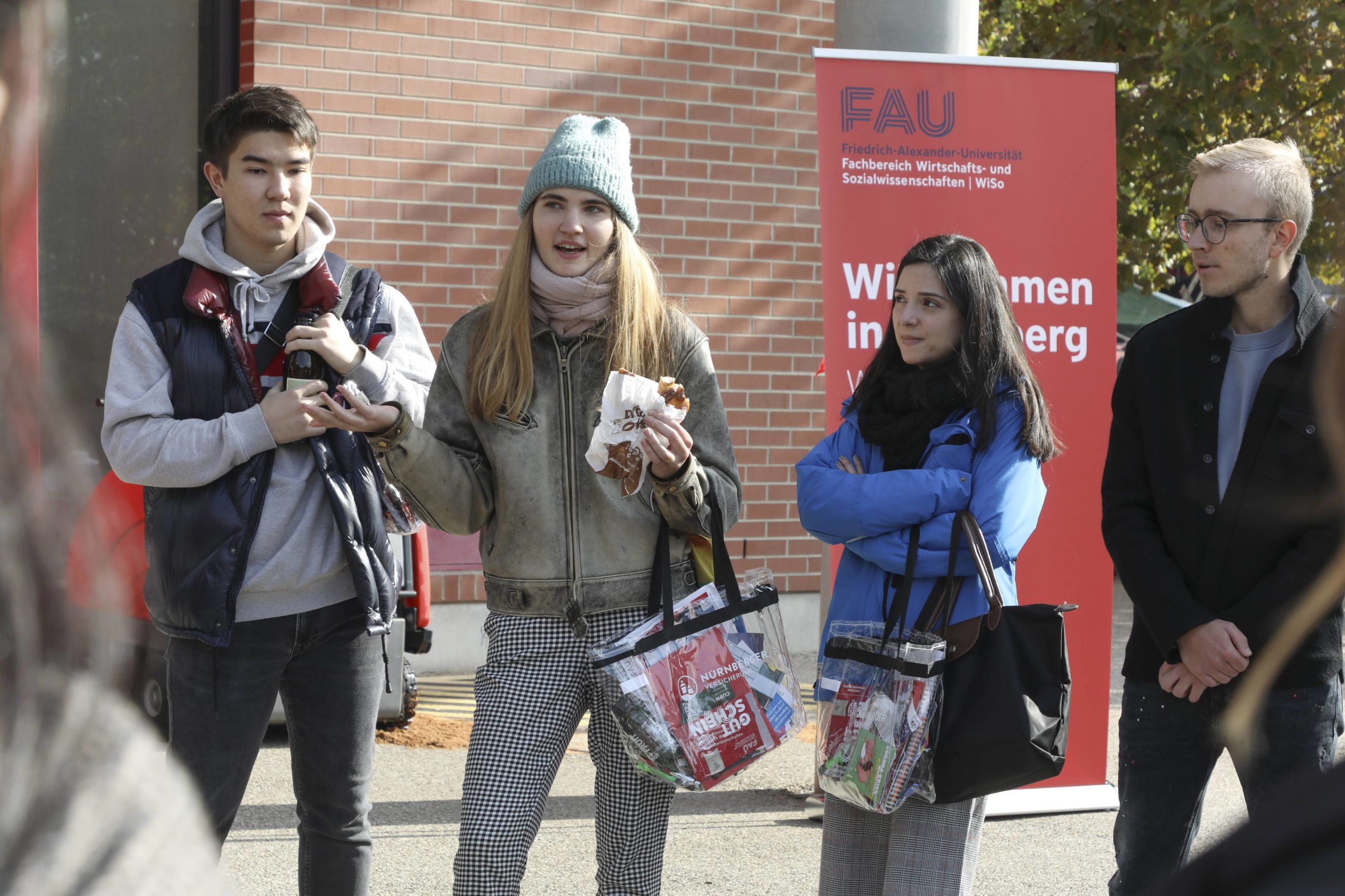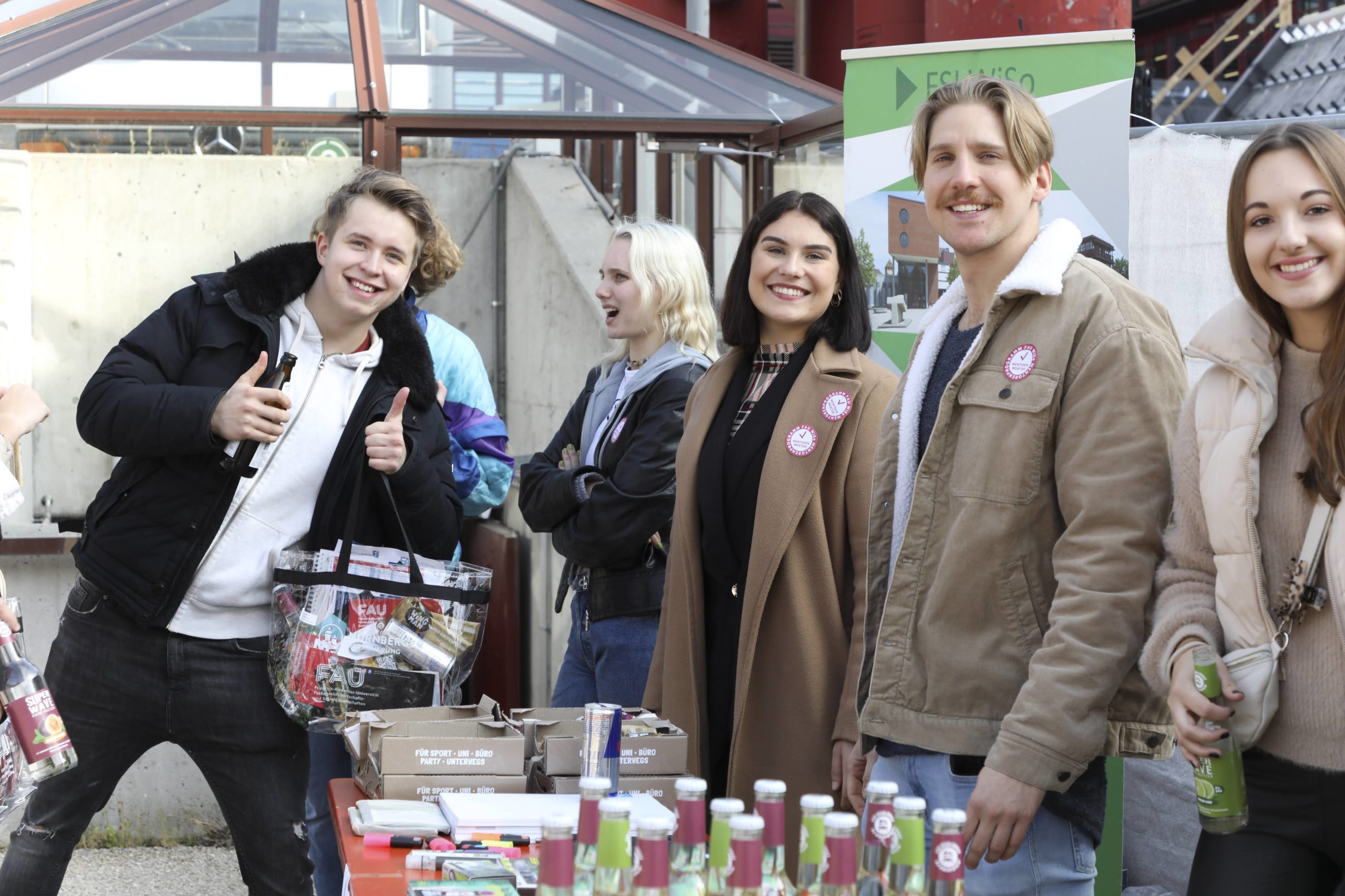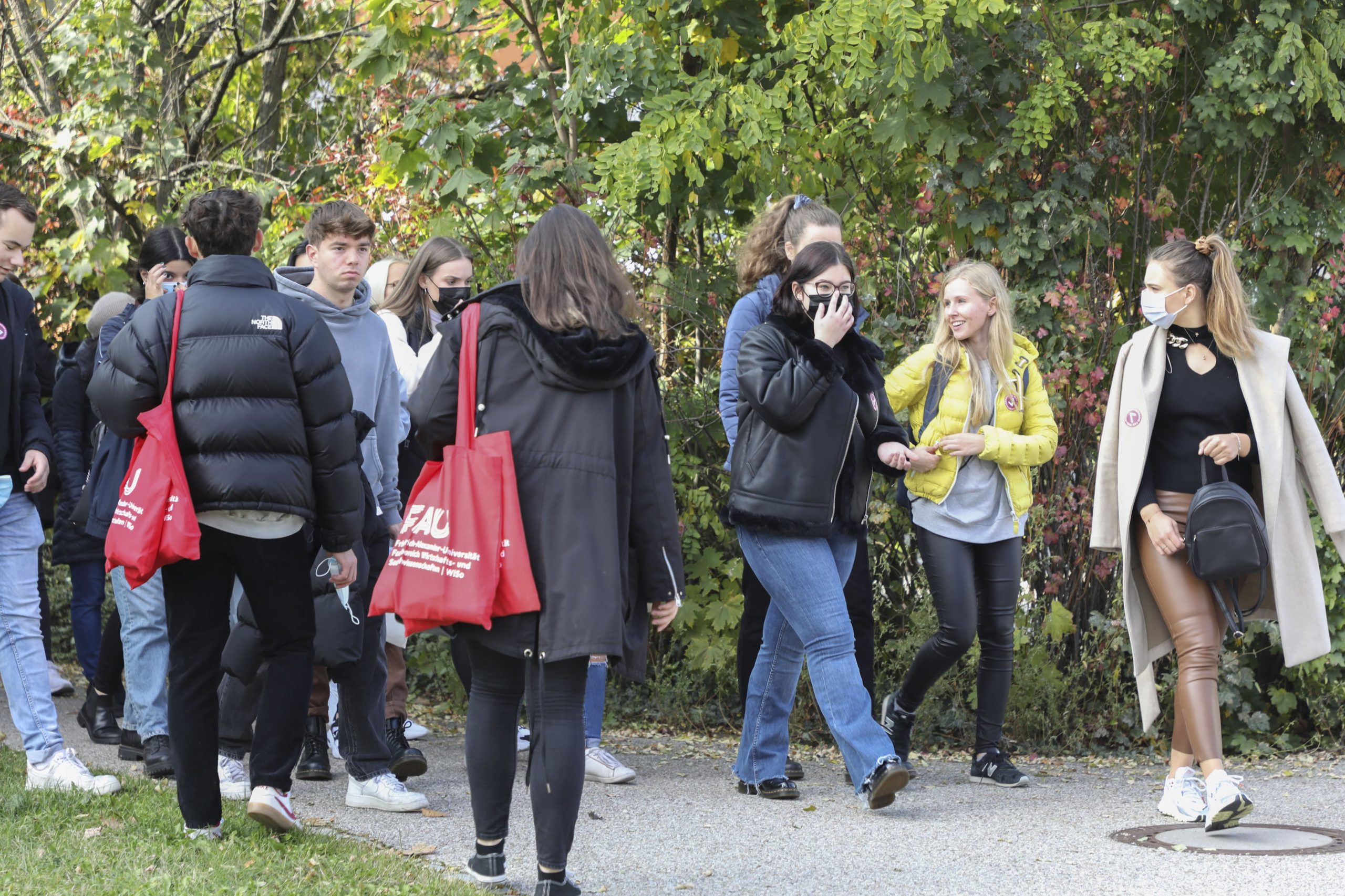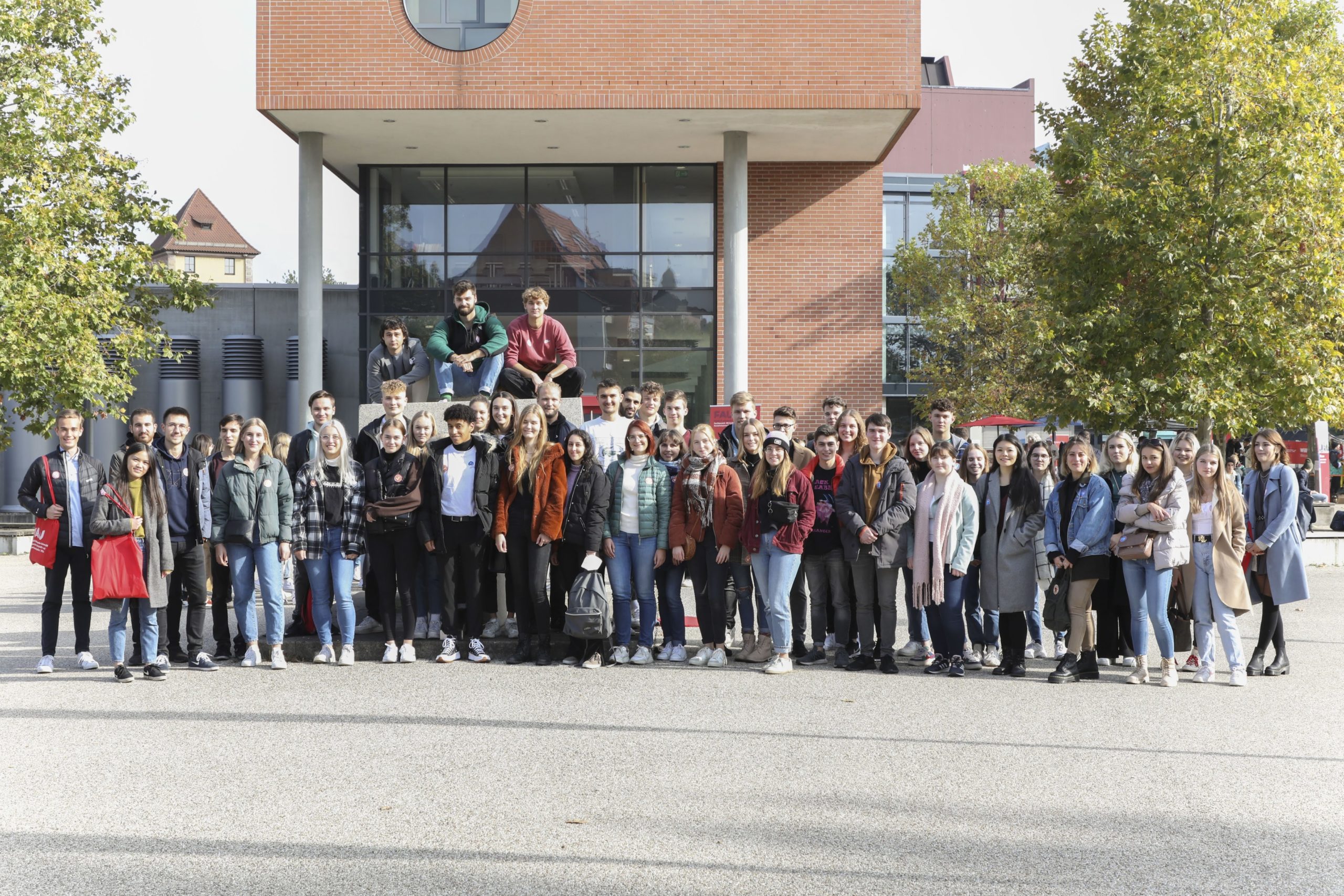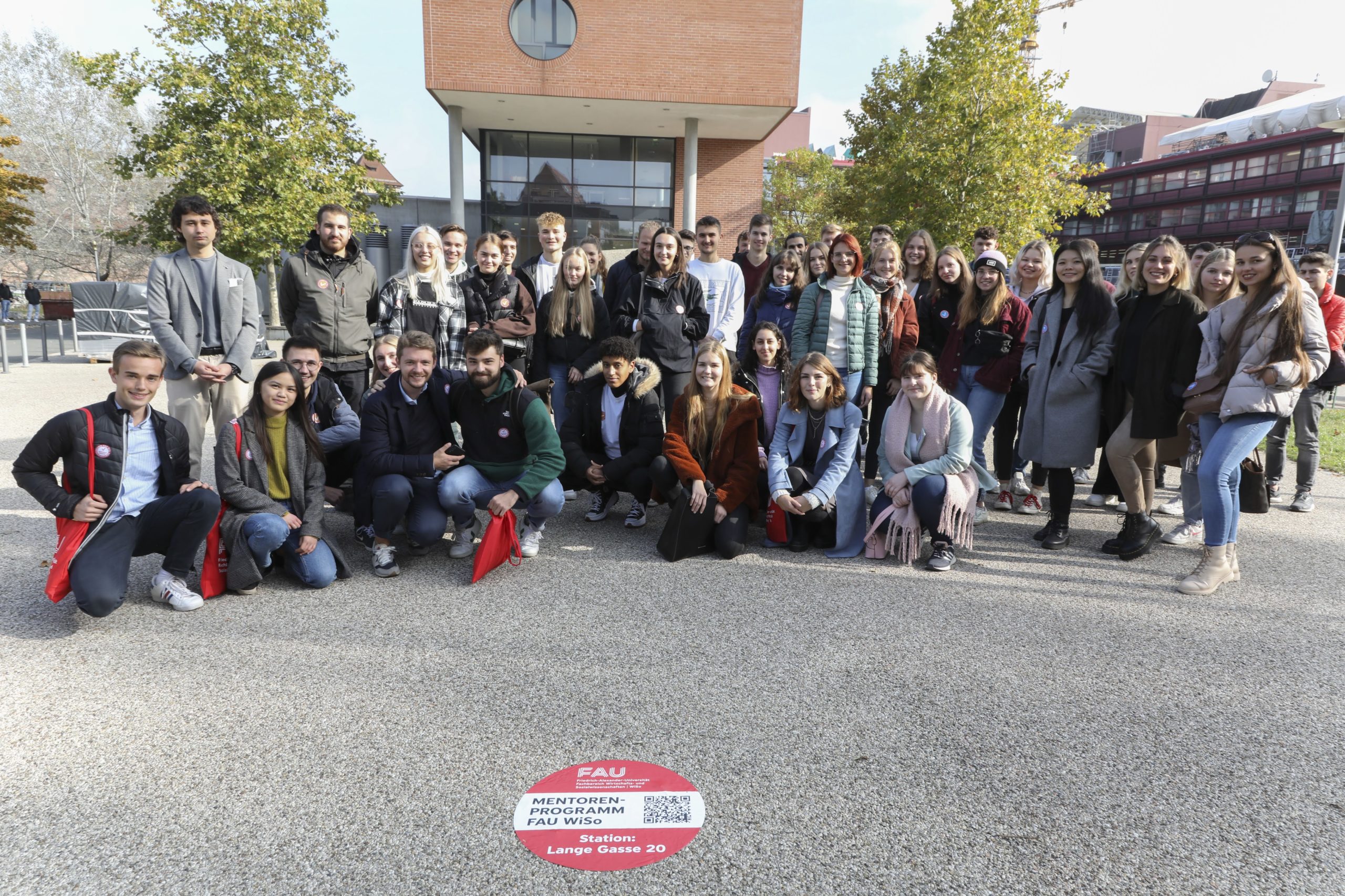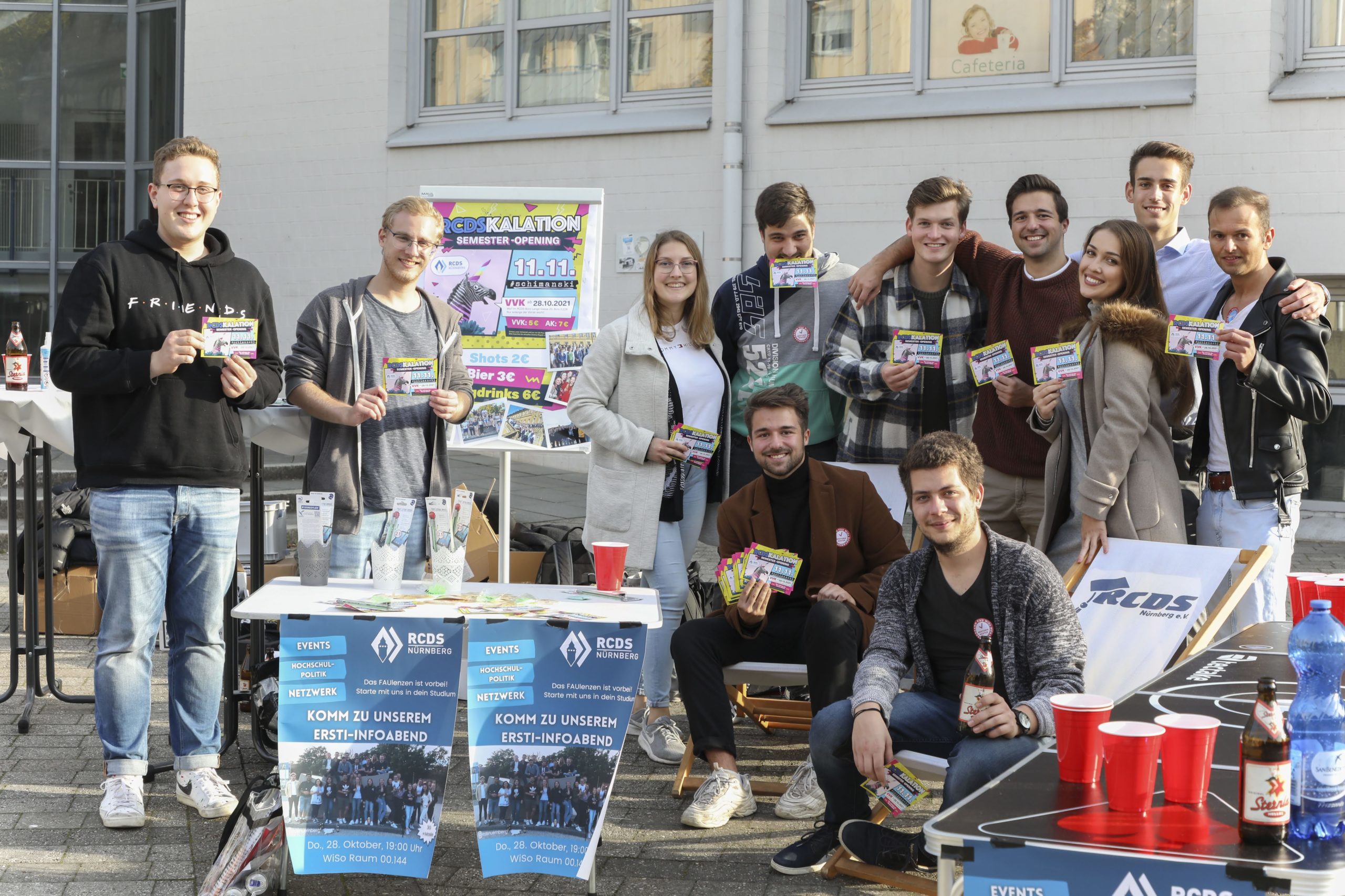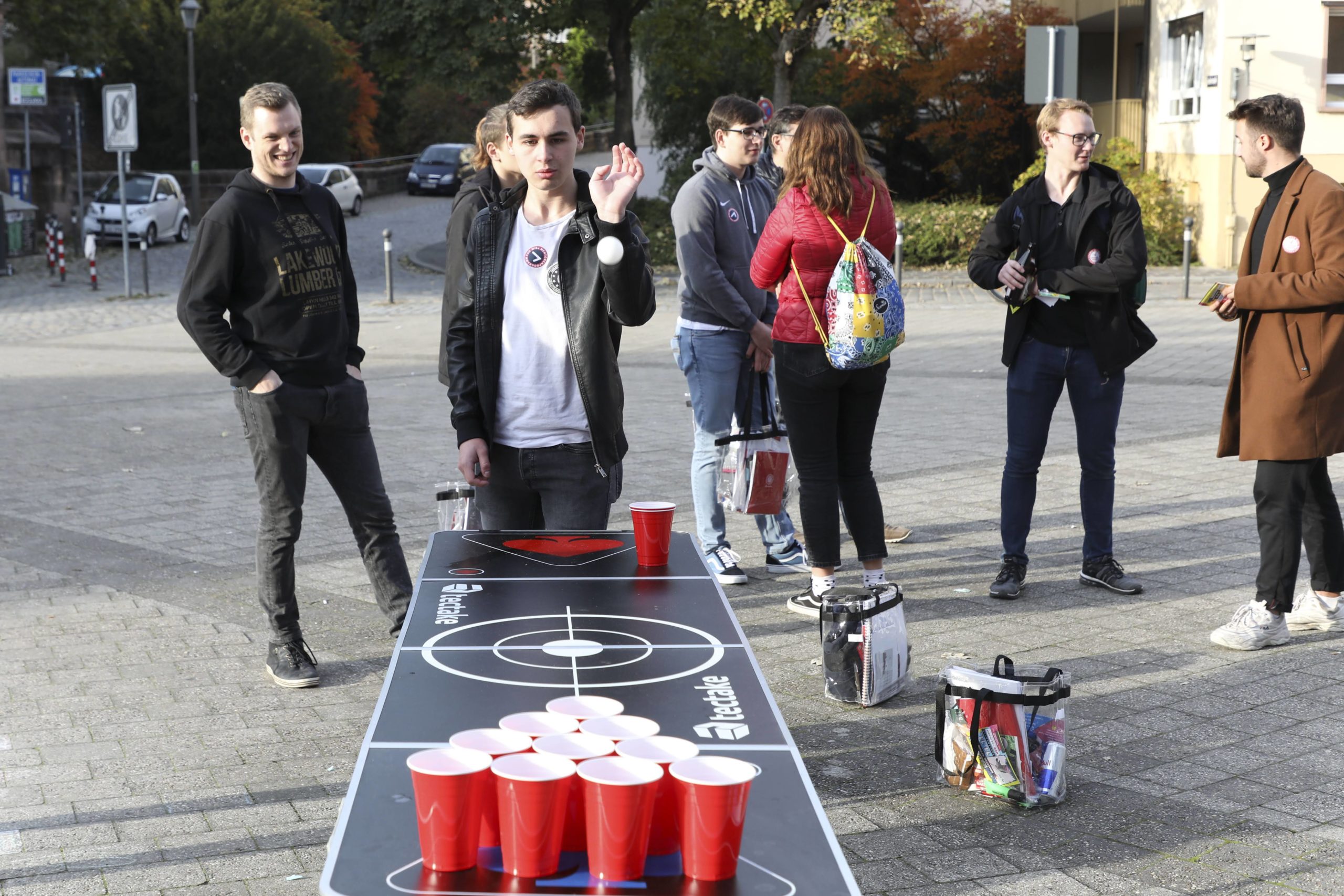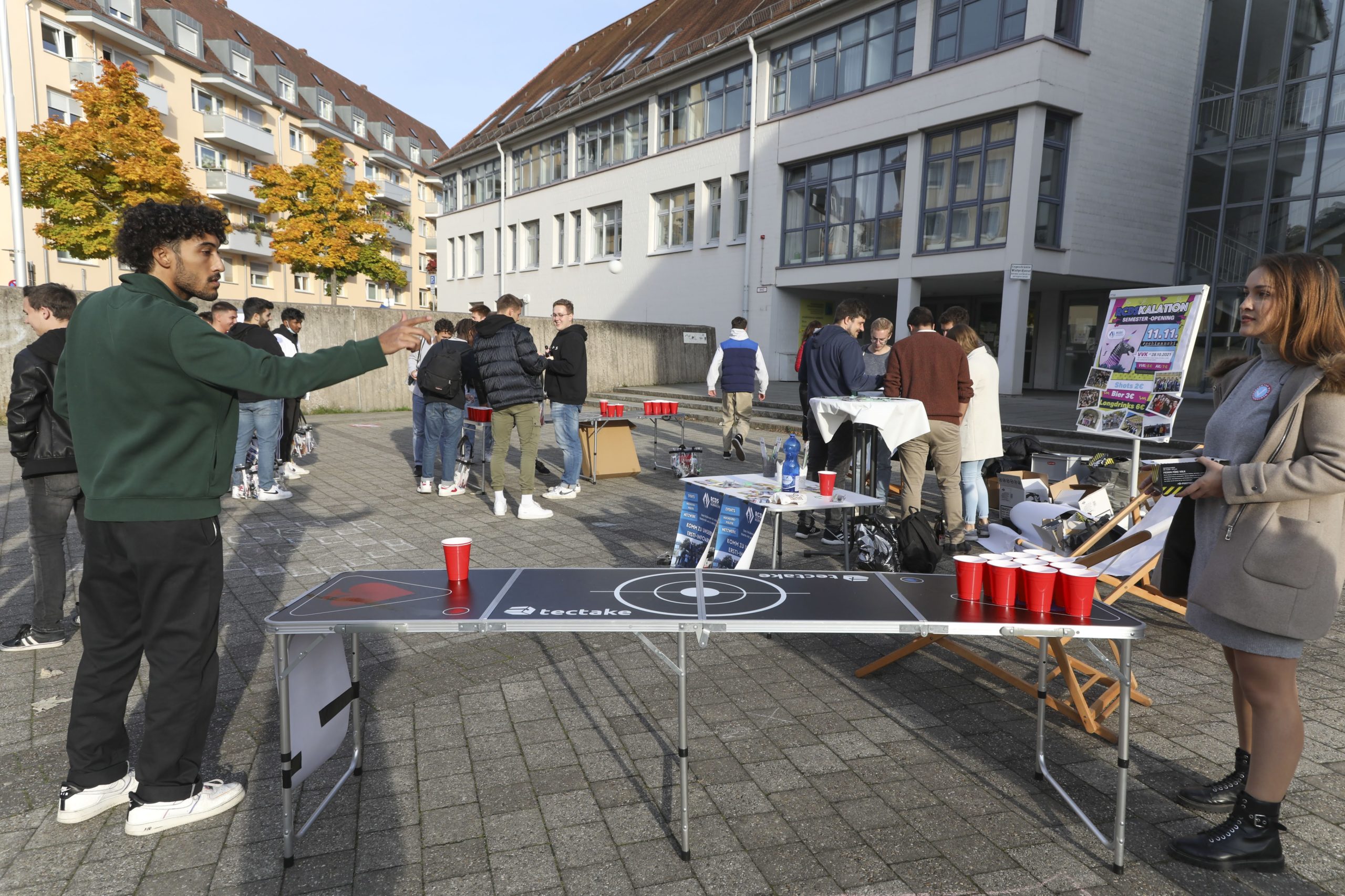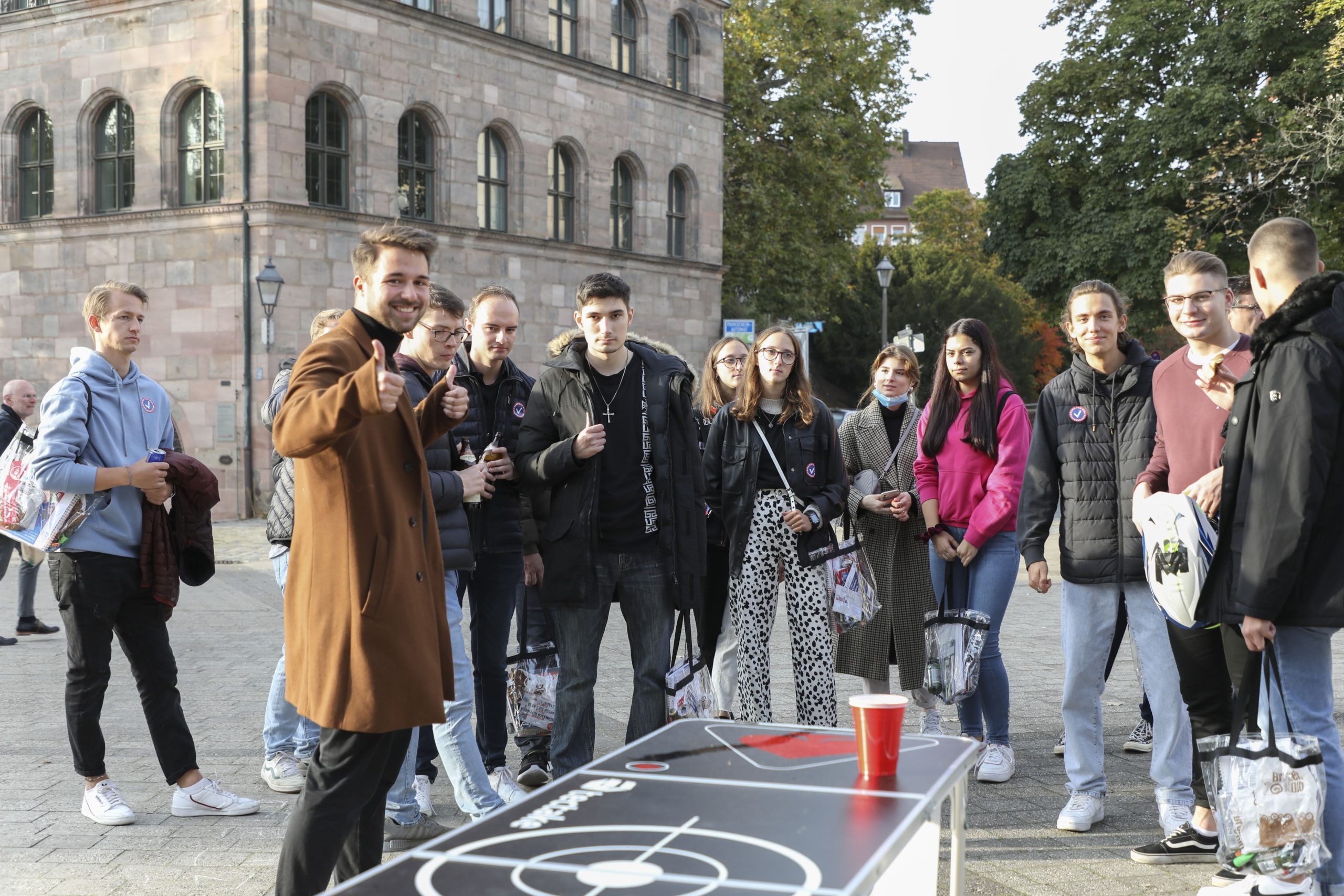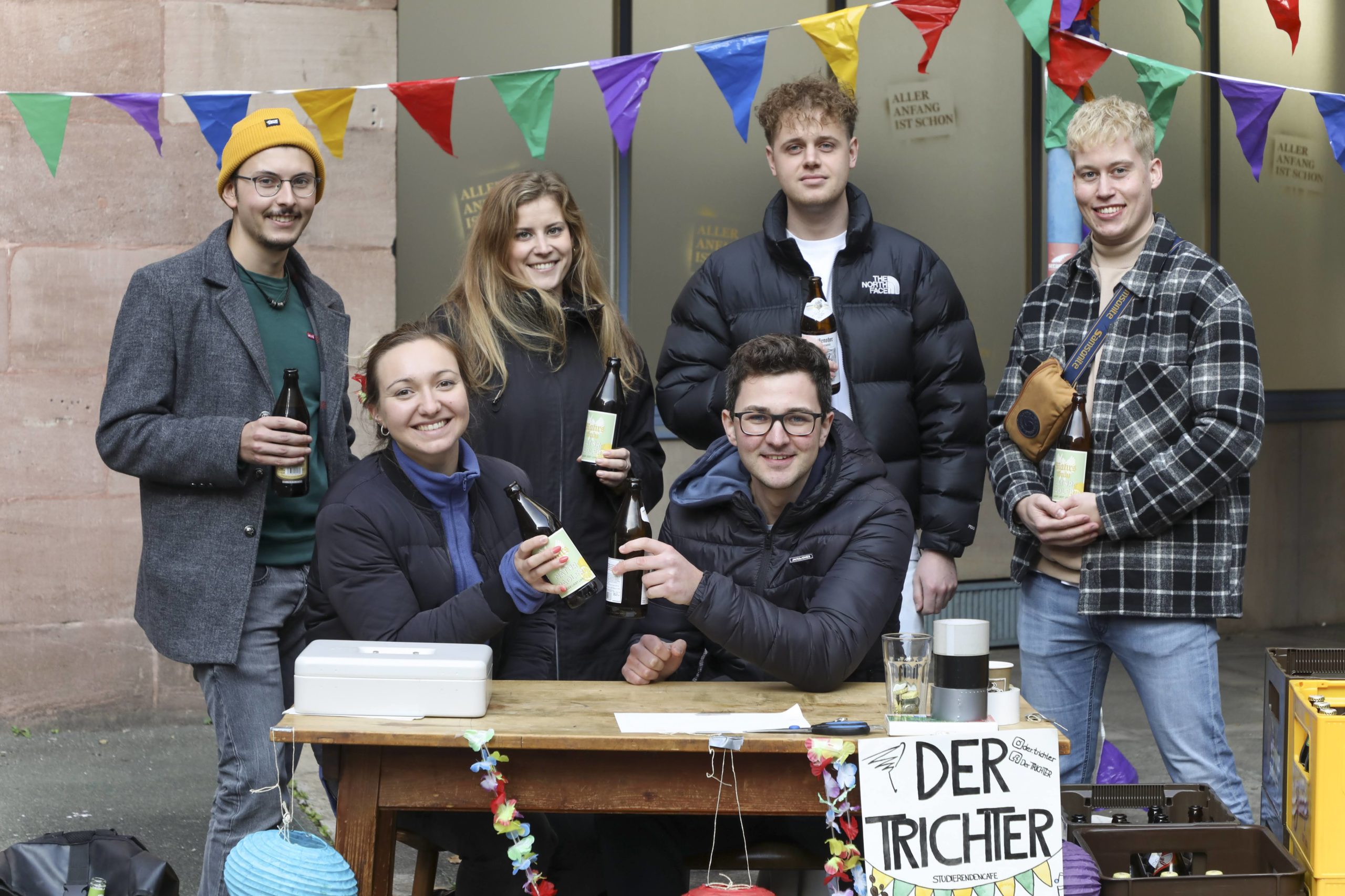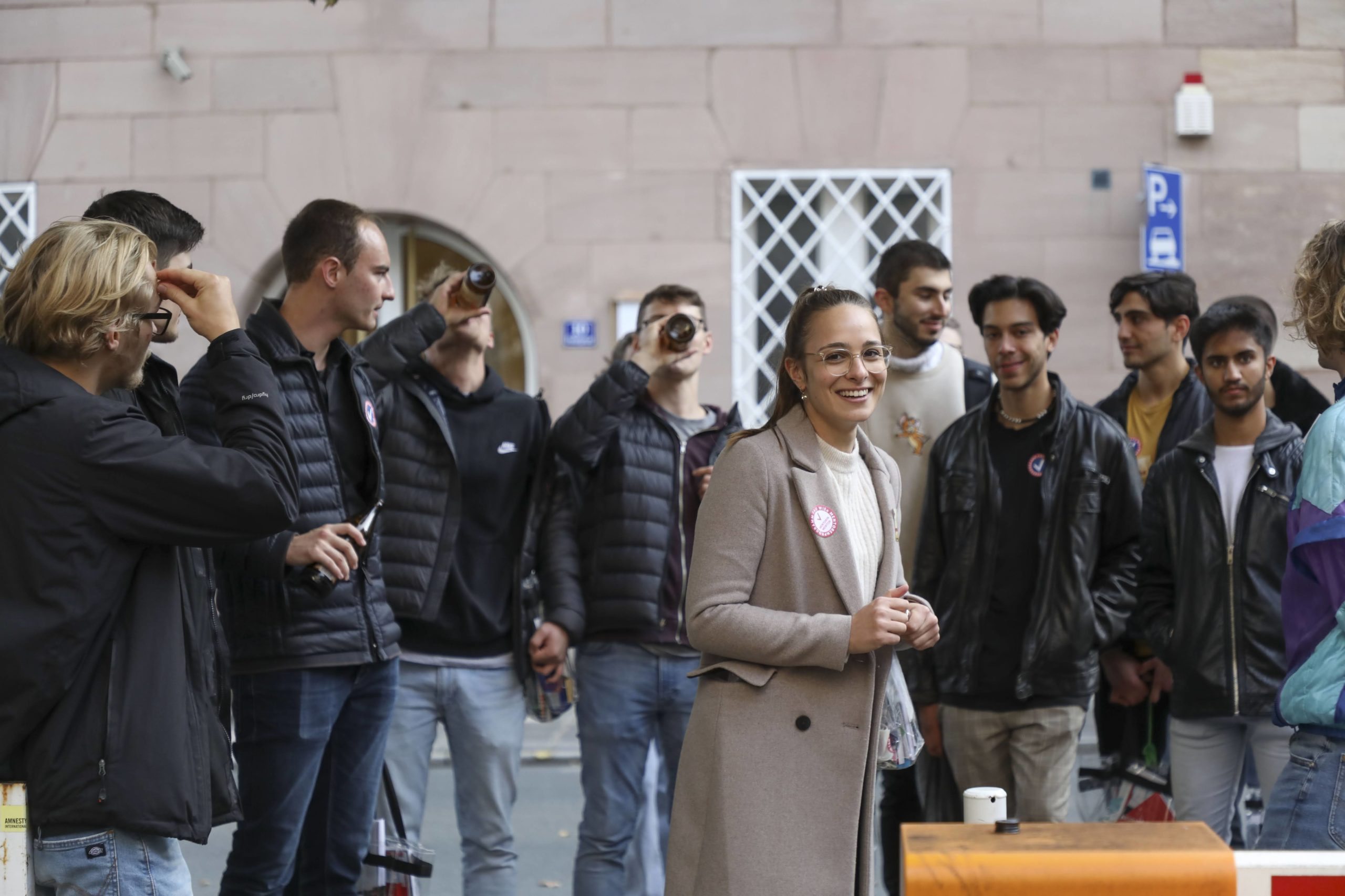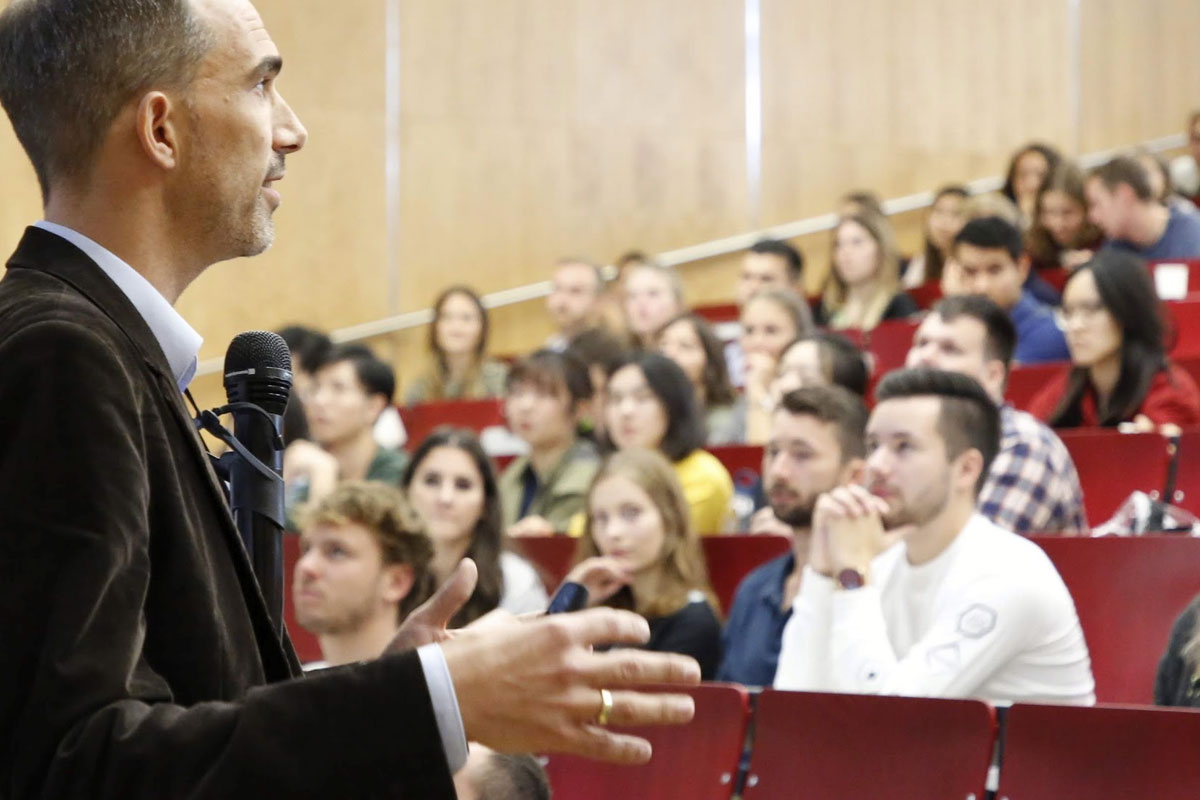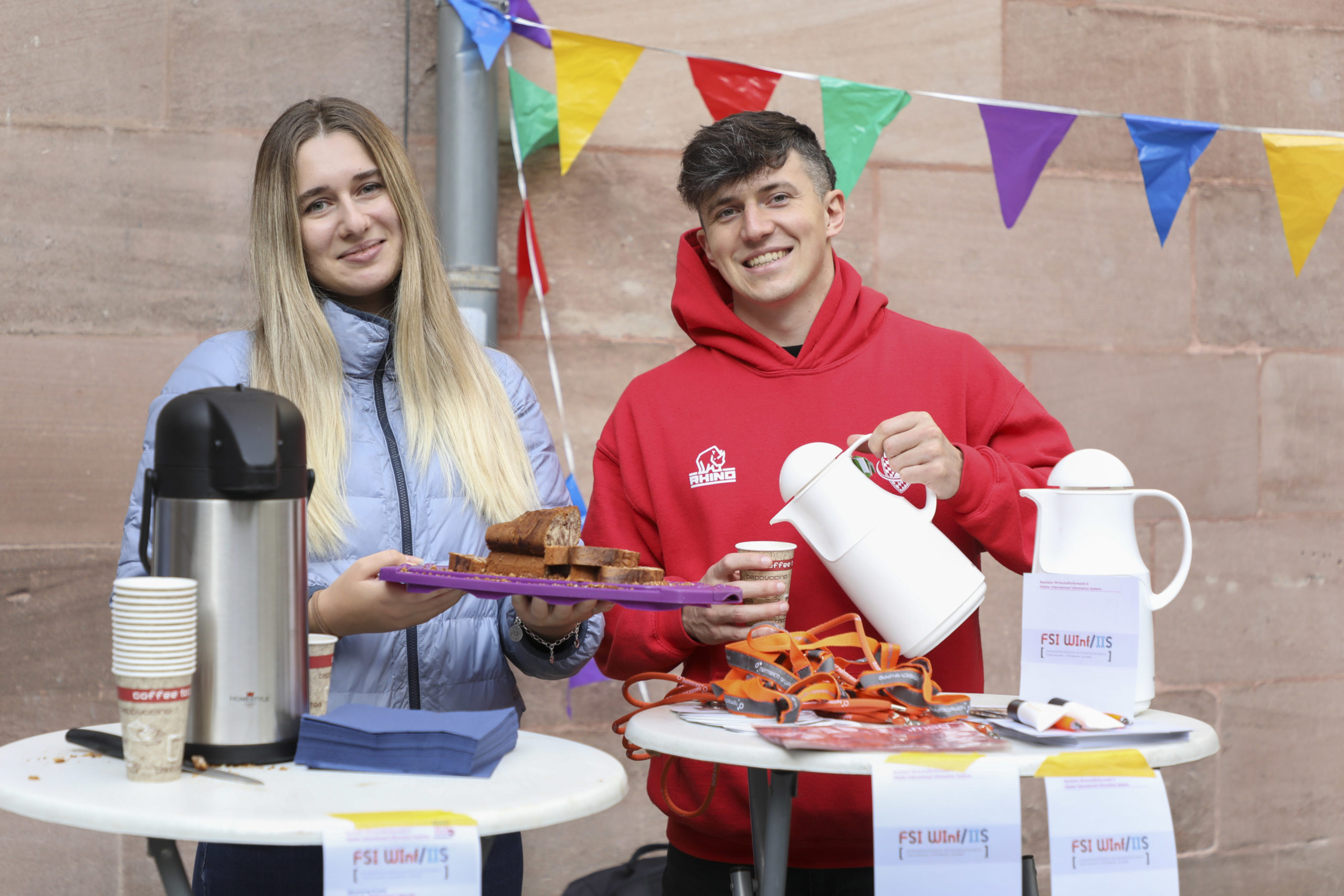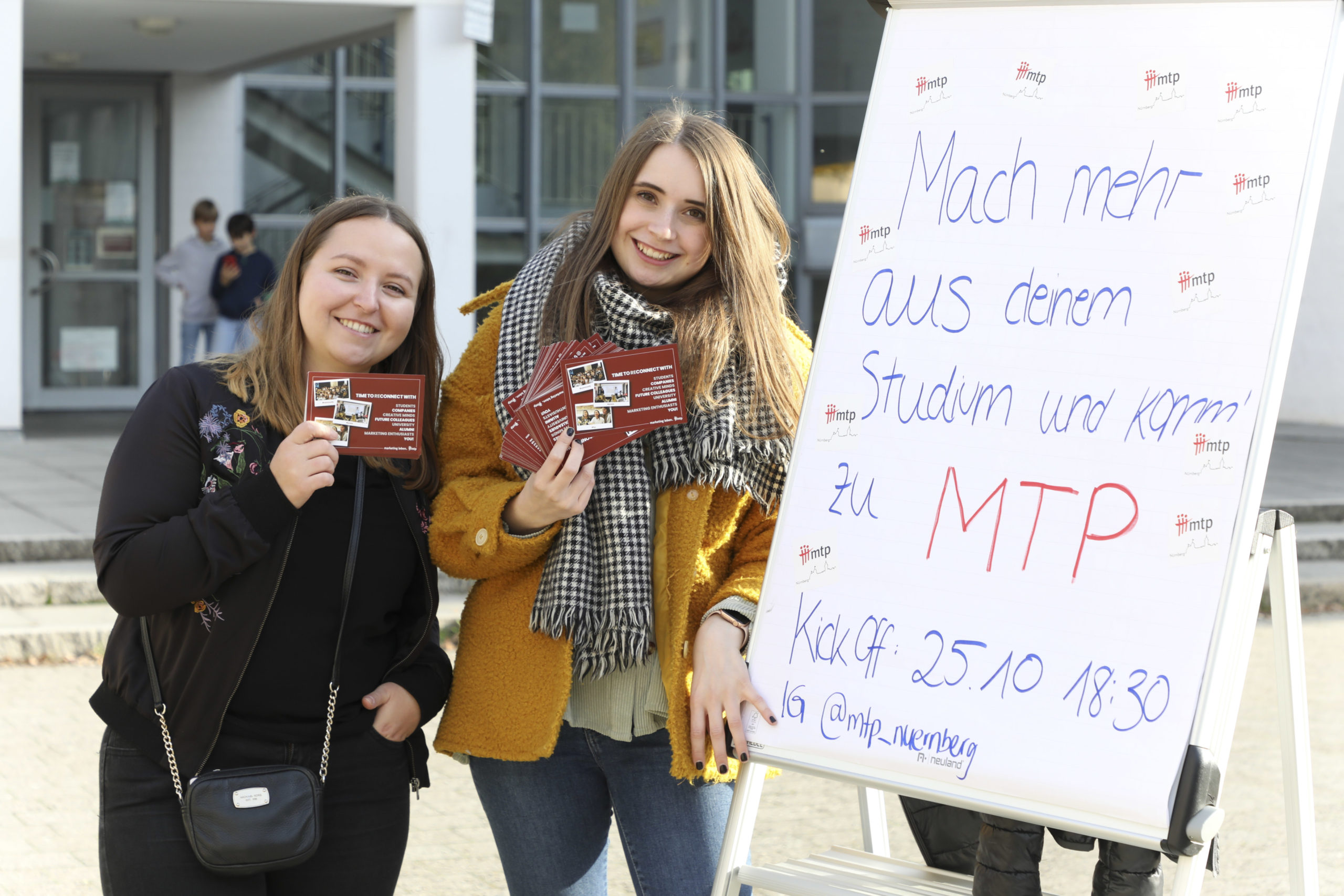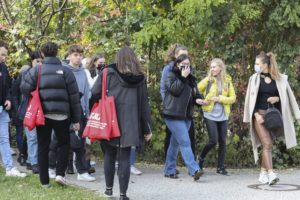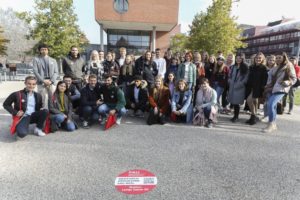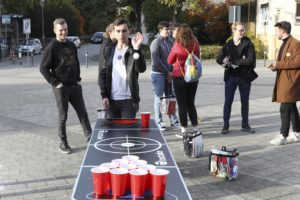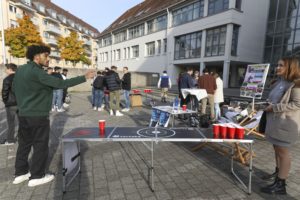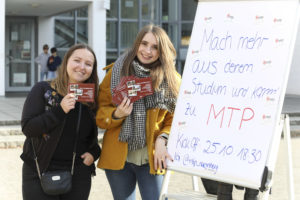How to make a successful start to your studies
At FAU WiSo, there are important introductory events that students must attend. In these introductory events, key questions about the structure of the degree program are answered. There are tips and information about the organization and course of studies. And, of course, you can get to know your future fellow students.
- For students of Business Studies (incl. all new fields of study such as sustainability, FACT-S, etc.): corporate strategic planning simulations
- For students of Socioeconomics: socioeconomics simulations
- For students of Information Systems: IS project week
- For students of IBS and IES: Bachelor IBS and IES
Support for first-semester students
The mentoring program of the School of Business, Economics and Society aims to make it easier for first-semester students to get started at university. The mentors are students from higher semesters who have taken part in this program themselves and know from their own experience what is important when starting university. They support the first semester students in getting to know new people, solving problems and answering questions. They are available to them throughout the semester.
Support areas for first-semester students
- Support for first semester students throughout the first semester
- Regular leisure activities in groups outside the university
- Support with problems, questions or building networks
- Encouraging motivation and reducing anxiety
- Orientation at the university
Participant feedback
Greta Mitzam
Bachelor’s degree program in Business Studies, 2nd semester
I thought the mentoring program was great. When you’re new in town and don’t know anyone, the mentoring program is a great opportunity to meet people.
Ferdinand Niedermeier
Bachelor’s degree program in Business Studies, 2nd semester
Thanks to regular contact with the mentors I learned a lot about life at the university. Whatever problems arise, the mentors are always happy to help. I’m going to apply to be a mentor next year so that I can pass on my knowledge to other new students.
Mentor feedback
Niklas Stohr
(Master in International Information Systems, 1st semester)
Melissa Kern
(Master in Marketing, 3rd semester)
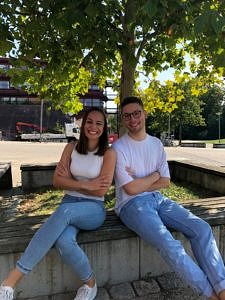
How did you come up with the mentoring program?
It secretly appealed to both of us when we were still first-year students ourselves – to be able to give new students a helping hand, to be the first point of contact – especially for those who have just moved to Nuremberg and therefore usually don’t know anyone – just like our mentors back then. Later on in our studies, it became increasingly clear to us how much less complicated specific situations in university life could have been if we had already had certain information. That’s why we were both tempted to become mentors.
We were both aware of the mentoring program through our own experience as first-year students, but also through official “advertising” in lectures or by email. At some point, we both applied officially, independently of each other, after receiving the invitation email. We each nominated a friend as a partner mentor and, after being accepted, attended the FBZHL mentor and business game training together in smaller groups! We already made our first contacts here. Then the simulation week started …
What do you think the mentoring program offers mentees?
There are many advantages. On the one hand, we give them the most important information for a successful start to their studies. On the other hand, we answer any questions, such as: Which modules will I have to take? How do I register for the exams? How do I study properly (for which module)? How do I create my timetable? When is what due? Where can I find which forms? And much more.
In addition, the mentees receive helpful tips from our own experiences as students, i.e. what we would do again or even better with regard to our studies. They also get a guided tour of the university (WISO, library, canteen, etc.) and all its institutions.
In addition, as already mentioned, the focus is on getting to know new people, with whom your time at university can certainly start with a lot of fun. We mentors organize a wide variety of events to speed up and simplify the process of getting to know each other. For example, we have organized one or two pub crawls, a visit to a restaurant or trips to the Christmas market.
How was the contact with the mentees and do you still have contact with them today?
We give the mentees the opportunity to get or stay in contact with us via various platforms: via the university’s studOn platform, email, Facebook or WhatsApp groups. This allows each first-year student to decide to what extent he or she wants to take advantage of the offer. Many of our mentees still come to us after several semesters if they have to make major decisions in their university life or if important questions arise. However, some have also become an integral part of our circle of friends. We continue to organize meetings with our former mentees and regularly invite them to other events!
What advantages do you see in being a mentor?
First and foremost, of course, is the fun!
Many of the best and funniest university moments have come about as part of the mentoring program, for example when all the mentors ordered pizza together during the lunch break or went out partying together once or twice.
In addition, the numerous interesting encounters with a wide variety of characters are a priority for us. Every year, we were able to get to know around 50 – 60 new first-year students, but also new mentors each time. Even if not every contact will be equally intensive and extensive, we can assure you that there is definitely enormous potential for great new friendships (see the two of us)!
In addition to the aspects mentioned above, being a mentor has also helped us grow as people. Be it as an exercise in taking on responsibility, presenting information in a structured way or presenting itself. Of course, the commitment also looks good on your CV, as you are already involved in university life during your studies. In addition, it is never wrong to think long-term, i.e. to take the opportunity to make valuable contacts for the future or your later professional life while you are still at university.
Would you apply to be a mentor again?
We have both been mentors on the mentoring program 4 times now. We think that speaks for itself!
Through the program, not only did we get to know each other and become close friends, but we also met many other great people who we can now count among our circle of friends. We grew as people and were able to pass on our knowledge of everyday life at university to our fellow students.
So to sum up: we would always apply again, but now we want to make room for other students who also want to take advantage of this opportunity as a mentor – we can both highly recommend it!
